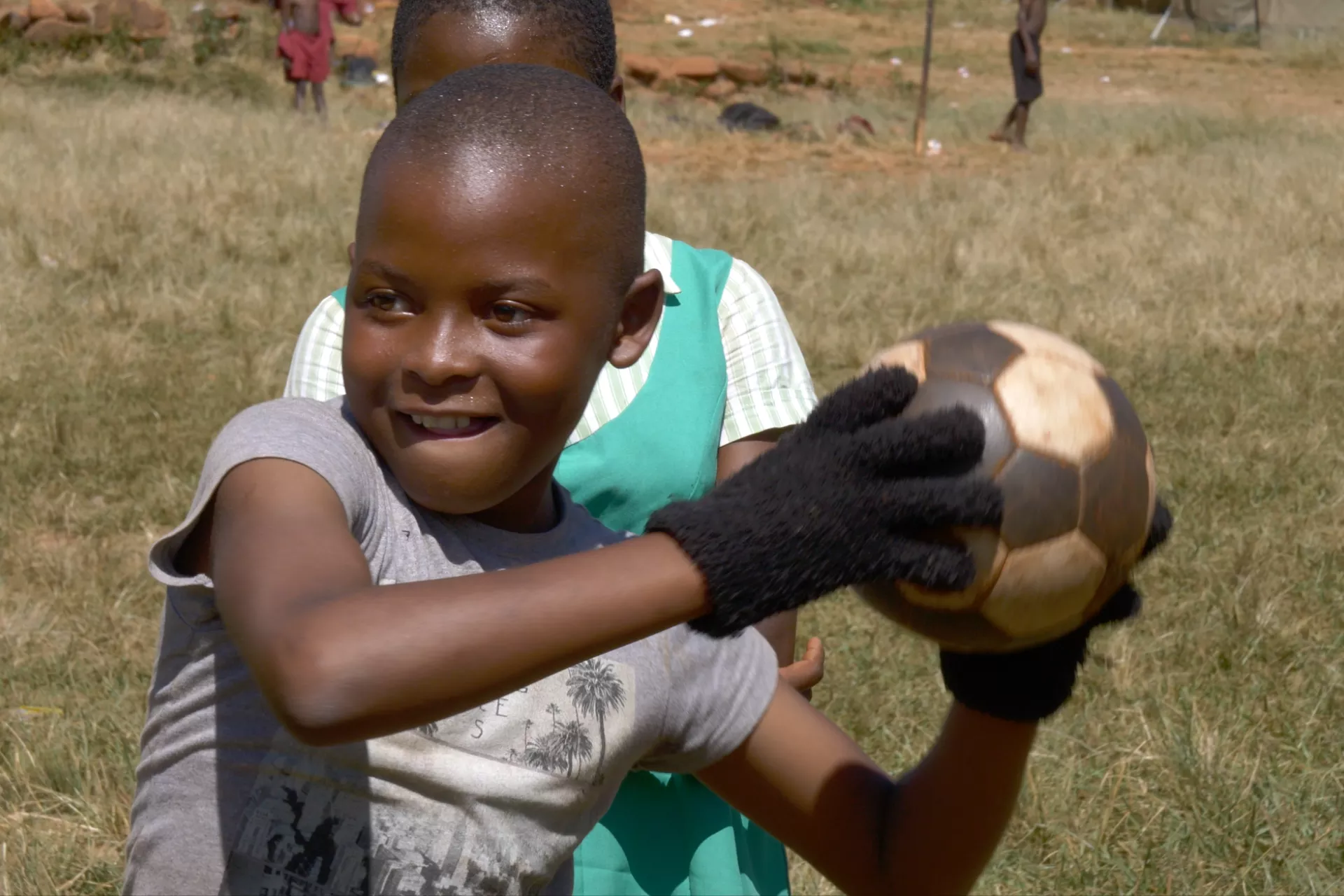Helping Chimanimani school children recover from Cyclone Idai
Schools around Cyclone-Idai affected Districts have re-opened for the new school term.

CHIMANIMANI, Zimbabwe, – Ten-year-old Brian stands out from the sea of students at Dzingire Primary School in Chimanimani because he is not wearing a uniform. "All our belongings were lost when the Cyclone washed our house away," he says. His father and younger brother were killed when the Cyclone Idai left its trail of destruction in Dzingire village.
Across Zimbabwe, it is the first day of the new school term. Despite the familiar sound of children’s chatter and laughter, for the 706 students at the Dzingire Primary School, the term begins like no other. Fifty students, the headmaster and three teachers died when the Cyclone ravaged their village, located near Copa Growth Point - now considered the epicentre of the disaster. Some students were orphaned by the cyclone and many, like Brian, lost immediate family members and neighbours.
"All our belongings were lost when the Cyclone washed our house away,"
The Cyclone struck in the middle of the school term in March 2019, leaving 139 schools in six Districts with damaged infrastructure including classrooms, toilets, water sources and learning materials. Many schools were forced to close prematurely. UNICEF, working with the Ministry of Primary and Secondary Education, and with funding from donors including the German Government and the Global Partnership for Education (GPE) is providing textbooks, recreational kits, and tents to create temporary learning spaces, so that schools such as Dzingire Primary School can reopen and provide affected children with an education and sense of normalcy in their lives.
While the repair of damaged schools and safe learning spaces are critical, a recent Rapid Joint Education Needs Assessment (RJENA) carried out by the Education Cluster, led by the Ministry of Primary and Secondary Education, found that 66 per cent of teachers felt that psychosocial support was their greatest need.

In response, UNICEF has assisted in providing peer and learner support resource materials for teachers and work books for students to help them cope with the aftermath of the Cyclone Idai. At the most-affected schools, the first few weeks of the new term will focus on psychosocial activities. Teachers at Dzingire Primary School underwent extensive training prior to the opening of school to prepare them for this.
Simeon Dhliwayo teaches Grade 4A at Dzingire. His class lost four pupils in the Cyclone, and he is struggling to grapple with the loss of his students, his headmaster and teaching colleagues. “It is difficult to come back to school today to see these empty spaces in my classroom. The children may not say anything, but you can tell that they are in pain,” he says. “Last term, the headmaster and I had discussed several projects that we wanted to undertake this term. Now we feel lost because our leader has gone.”
Nine-year-old Nyasha is a student in Mr Dhliwayo’s class. He had to walk 2km uphill to get to school. In the past, his Dad would give him a lift to school, but his father was killed when his car was washed away by the river as he drove home to his family. They found the car 10km downstream. "Today is sad for me also because my friend Keletso, who used to sit in my group in class, is gone - his whole family was washed away by the Cyclone," says Nyasha. "I miss him."
The Ministry of Primary and Secondary Education has deployed trained staff members to provide psychosocial support to raise the children's spirits. "These children and their teachers have all gone through an extremely traumatic experience," says Charles Mavhunze, a teacher who has been trained to conduct psychosocial sessions with children and teachers at the school. "These group activities are an attempt to draw them out, so they can begin to talk about their fears and anxieties in a safe space.”
Life will never be the same for Brian, Nyasha and the other students and teachers at Dzingire Primary School. However, with timely psychosocial interventions at schools in the affected Districts, they will slowly be able to build the resilience needed to live past this tragedy.
The project was implemented with support of the EU’s humanitarian aid





